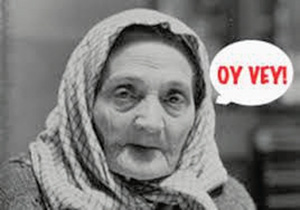
If an alien from outer space were to land on earth, it might be difficult to explain to such a newcomer the current composition of the Jewish People. Technically speaking, a Jew is a Jew is a Jew. Practically speaking, however, many Jews put themselves or others into different groups with special names, labels and designations. For example, some Jews consider themselves either Ashkenazic or Sephardic while other Jews classify themselves as Orthodox, Conservative or Reform. Some Jewish delis consider themselves kosher while other Jewish delis style themselves as kosher style. Some bookstores consider themselves as Jewish bookstores while others simply sell some Jewish books.
Inevitably, if you have to explain the Jewish People to the uninformed, you might have to field some unanticipated questions. For instance:
- 1. When a Jew wears tzizzit and a tallis, isn’t that redundant?
- 2. When a Jew wears a kippah and a hat, isn’t that also redundant?
- 3. When a Jew celebrates a simcha with a lavish kiddish and then a separate sit-down luncheon, isn’t that redundant too?
Someone who knows nothing about the Jewish People might get hung up on official titles and designations. They also might wonder about whether, for each category of Jew, there is a corresponding opposite. That is tricky because even when it comes to something as basic as Jewish food, identifying the corresponding opposite can be a bit confusing. For example, to some the opposite of a bagel is a roll because a roll has no hole. To others, the opposite of a bagel is cream cheese because one is bread and the other is a spread. And yet to others, the opposite of a bagel is the matzah because one has a solid crust and the other can easily be crumbled into dust. Thus, the opposite of something is not always black and white like day and night, dark and light, blind and sight, width and height, save and smite or important and trite. Those opposites are clear but, in contrast, what exactly is the opposite of a nudnik? Discuss.
Let’s address some other potentially confusing opposites in the Jewish World.
To some, the opposite of “Modern Orthodox” might be “Ancient Orthodox” but the term “ancient” arguably has a less-than-flattering connotation. A more accurate and less controversial opposite of “Modern Orthodox” might be something like “Pre-Modern Orthodox.”
Some might argue that the opposite of “Open Orthodox” is “Closed Orthodox,” but others may counter than the term “closed” is a subjective term that unfairly gives a negative connotation. So, a fairer opposite of “Open Orthodox” might be something like “Not Fully Ajar Orthodox.”
To some, a Conservative Jew might sound like a Jew who is risk-averse, e.g., someone who refuses to (i) enter a casino or the stock market, (ii) skydive or bungee-jump or (iii) eat jalapeño or ghost peppers. A highly risk-averse Jew is someone who always leaves the sanctuary before hagbah just in case the Torah is accidentally dropped or torn (chas v’shalom!), because that would require everyone in the room to fast. On Passover, an extremely risk-averse Jew would not eat mandel bread, even if it is certified by the highest authorities as Kosher for Passover, because it’s name contains the word “bread.” On Yom Kippur, an incredibly risk-averse Jew would not allow a braggart to declare “Eat your heart out,” because a passerby might believe there is actual eating going on.
To some, a Reconstructionist Jew might sound like someone who enjoys synagogue renovations. To them, the opposite of a
Reconstructionist Jew might be a Demolition Jew. One could argue that a “Demolition Jew” more aptly describes a ravenous Jew with a bottomless appetite who sets out to conquer a buffet.
To some, a Jew who keeps shabbos might sound like someone who is satisfied with a transaction. To that person, the opposite of a Jew who keeps shabbos might be a Jew who returns shabbos. Of course, no Jew should try or even want to return shabbos because it is a blessing, honor and requirement for all Jews to keep it. There are other things in life that a Jew should not try to return including (i) anything that is half-eaten, (ii) gifts that are custom-made and monogrammed or (iii) your spouse. That said, other things in life should, if possible, be returned like a (i) tennis serve, (ii) a letter with insufficient postage or (iii) a favor.
Final thought: Technically, the opposite of stuffed cabbage is empty ruffage and the opposite of chopped liver is intact intestine.
By Jon Kranz










